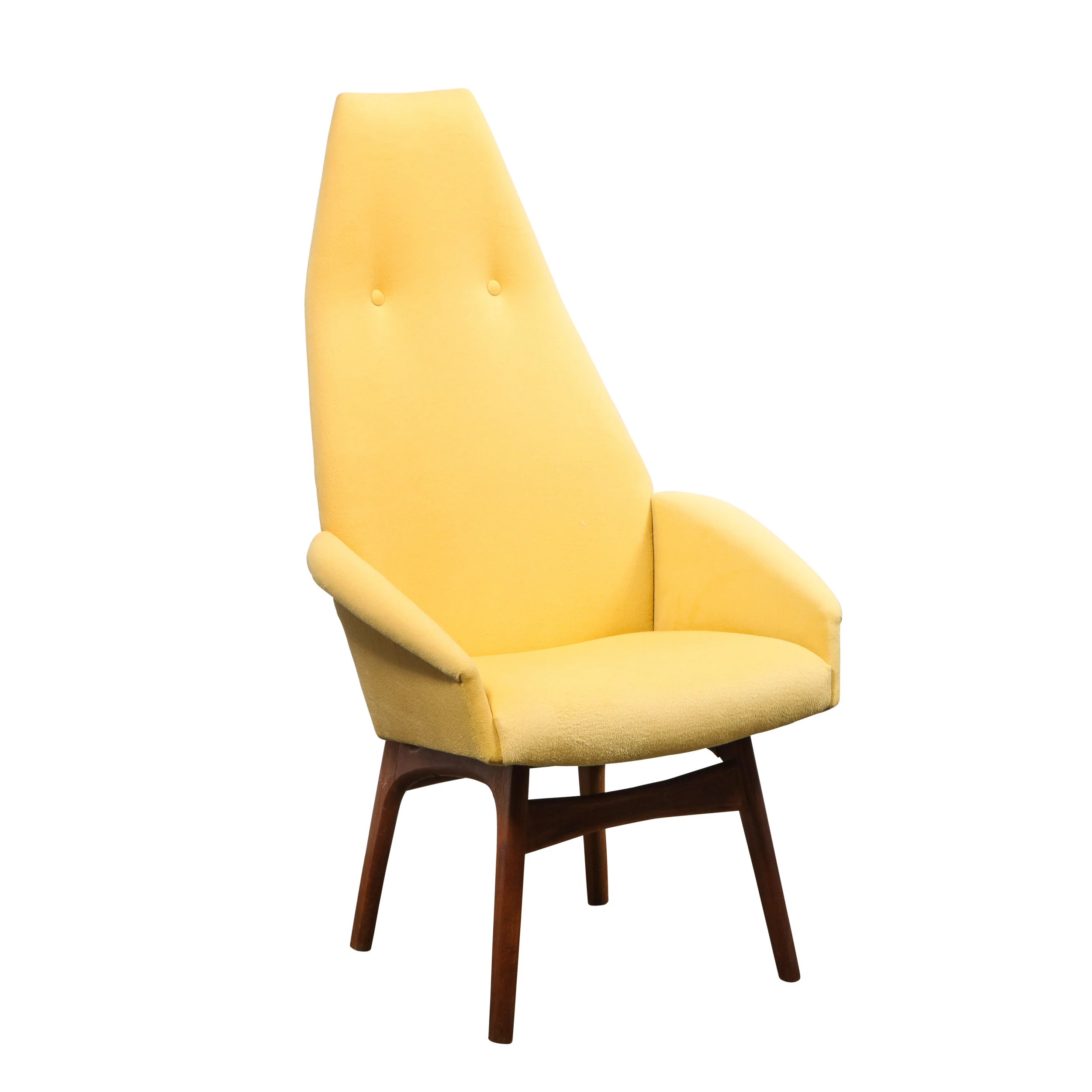Adrian Pearsall stands on the dock near a sailboat, perhaps preparing for an inspirational afternoon on the water.
ADRIAN PEARSALL
Adrian Pearsall, born in 1925 in Trumansburg, New York, was a notable American architect and furniture designer whose work played a significant role in defining mid-century modern design. Pearsall’s contributions, particularly his innovative use of American black walnut and his pioneering modular designs, have left a lasting legacy.
Pearsall’s interest in design and craftsmanship was evident from a young age. After serving in the US Navy at 17, he pursued a degree in Architectural Engineering from the University of Illinois, graduating in 1950. His educational background in architecture deeply influenced his approach to furniture design, emphasizing both form and function. In 1952, shortly after marrying his wife Dorie, Pearsall founded Craft Associates in the basement of his Pennsylvania home, where he began building and selling furniture out of the back of a truck.
The early years of Craft Associates were challenging as Pearsall searched for his distinctive style. His breakthrough came with his walnut base tables topped with glass, which gained popularity and led to his designs being featured in prestigious department stores such as Macy's and Wanamaker's. The success of these pieces allowed Craft Associates to expand rapidly. Pearsall's brother, Richard, joined the business, and they moved operations to a factory in Wilkes Barre, Pennsylvania. By the 1960s, Craft Associates had grown from a small workshop to one of the largest employers in the area, boasting over 800 employees at its peak.
In 1969, Pearsall sold Craft Associates to Lane Furniture Company and subsequently co-founded Comfort Designs in the 1970s with business partner John Graham. This venture marked a shift from walnut tables and chairs to a focus on sofas and upholstery. Despite his success in furniture design, Pearsall eventually left the industry to pursue his passion for sailing and yacht restoration.
Pearsall’s designs are celebrated for their clean lines, organic shapes, and the strategic use of walnut wood. His innovative approach to modular furniture, which allowed for various configurations and adaptability, was groundbreaking. This concept extended beyond seating to include tables with interchangeable legs and case goods with customizable features. His work bridged the gap between beauty and practicality, making high-style furniture accessible to the middle class.
Among his notable designs are various types of chairs, including dining chairs, recliners, rockers, and swivel chairs, many featuring his signature walnut accents. Pearsall also played a significant role in popularizing the beanbag chair. His influence extended beyond his lifetime, inspiring modern collections like the Statements Collection by Copeland Furniture and being recognized in design retrospectives and museum exhibitions.
Adrian Pearsall passed away on September 6, 2011, in Washington Crossing, Pennsylvania. His legacy continues through the timeless appeal of his designs, which remain highly sought after by collectors and design enthusiasts. In 2008, he was nominated for induction into the American Furniture Hall of Fame, and in 2023, he was posthumously inducted into the Luzerne County Arts & Entertainment Hall of Fame.
Pearsall’s impact on mid-century modern design is undeniable. His bold, functional, and aesthetically pleasing creations have ensured that his work remains influential and celebrated. From his early walnut tables to his later modular furniture, Adrian Pearsall's designs continue to inspire and captivate, underscoring the enduring relevance of his visionary approach to furniture design.
COLLECTION





